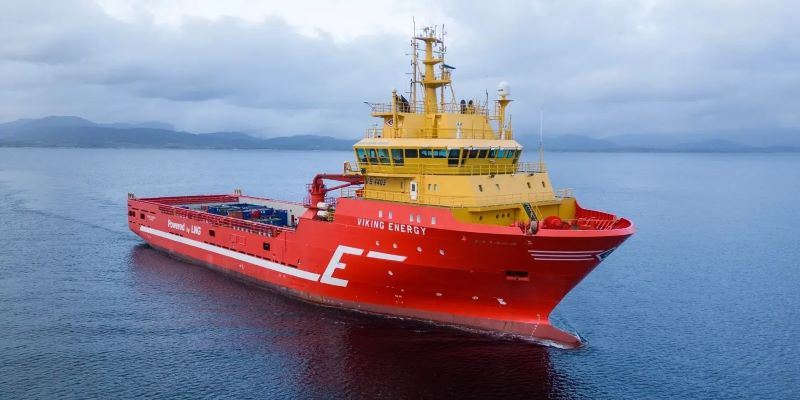Equinor deploys the world’s first ammonia-powered supply vessel
The ship will be completely rebuilt and put into operation in 2026 with low emissions

Equinor has signed a contract with Eidesvik Offshore to convert the supply vessel Viking Energy to ammonia operation. The vessel will be fully converted and will enter into low-emission operation in 2026.
The vessel supplies Equinor’s facilities on the Norwegian Continental Shelf (NCS).
Viking Energy will be the world’s first supply vessel powered by ammonia. Wärtsilä will build the engine on behalf of Eidesvik Offshore.
“We aim to halve the maritime emissions associated with our Norwegian operations by 2030. With this contract, we will deploy a new low-emission technology in collaboration with Eidesvik Offshore. We strongly believe in the use of ammonia as fuel on our supply vessels,” says Ørjan Kvelvane, Equinor’s Senior Vice President for Joint Operations Support.
By converting the vessel to ammonia operation, Eidesvik Offshore and Wärtsilä will reduce Viking Energy’s emissions by at least 70 percent. Equinor and Eidesvik Offshore have been working together on environmental technology at Viking Energy for 21 years.
At the time of its delivery in 2003, the vessel was the first supply vessel in the world to run on LNG. It was also the first vessel in the world to receive the DNV “Battery Power” designation.
In addition to using the ship in operation, Equinor will provide significant funding for the conversion to ammonia operation. The project will receive five million euros in funding from the EU’s Horizon Europe program. The necessary conversion and installation of the new engine, including the complete fuel gas supply and exhaust gas aftertreatment from Wärtsilä, will take place in 2026.
“The offshore fleet on the NCS is aging and needs to be renewed. Investments in new technologies are expensive and there are many uncertainties. At the same time, there is an urgent need to increase the use of operational technologies to enable the necessary transformation. Cooperation with the authorities and competent suppliers in the gradual introduction of new technologies is crucial to achieving the emission targets we have set,” says Kvelvane.
Register now to participate Accelerating Industry 4.0 and digital transformation for the Indian chemical industry on Wednesday, 28 Augustth2024
